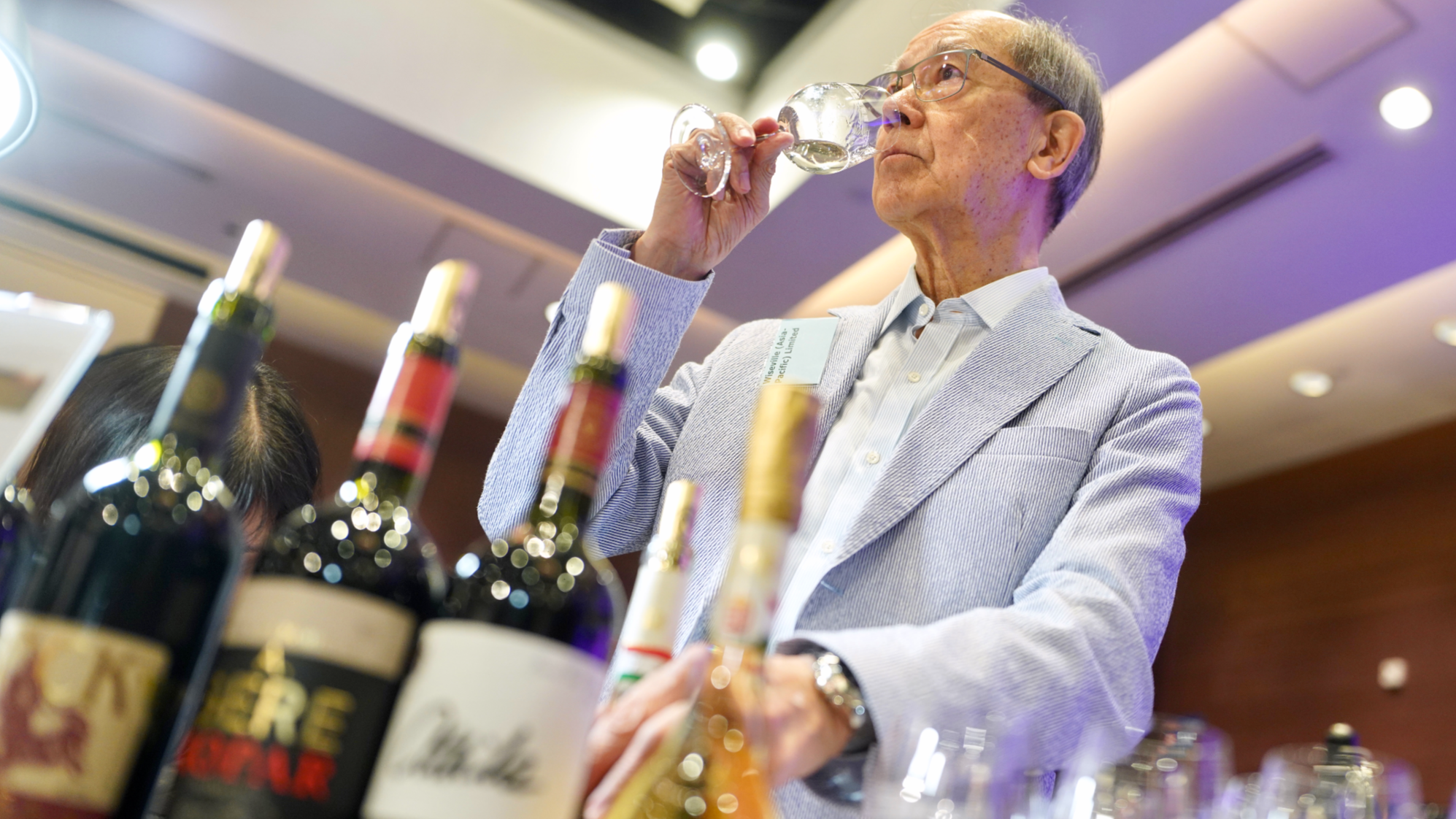
Amid talk of the pros and cons of the liquor-tax cut proposed in the Policy Address, business experts voiced their support for the city’s broader ambition to become a center for the spirits trade and bring Chinese spirits to the global stage.
In the latest effort to rekindle sales for restaurants, bars and retailers, Hong Kong has slashed the liquor tax on spirits with over 30 percent alcohol content and an import price above HK$200 ($26).
The two-tier tax regime, which will affect only 15 percent of liquor stock that “presents considerable growth potential”, strikes a delicate balance between helping Hong Kong reinforce its relevance in the alcohol trade across the region and mitigating public concerns over the potential encouragement of alcohol consumption and addiction, said Ivy Cheung Wing-han, regional senior partner at KPMG in the Hong Kong Special Administrative Region.
READ MORE: Reform, livelihood focus of CE's third policy address
With the initiative targeting only a specific portion of the market, some industry groups deemed it a limited stimulus.
But the tax cut is expected to reduce the average tax burden on whisky, brandy and other premium spirits, which constitute the bulk of Hong Kong’s imported liquor products and represent about 98 percent of the total import value for such items over the first eight months of the year, by 24.8 percent to 53.1 percent per liter, said Chu Wing-chor, principal economist of the Hong Kong Trade Development Council (HKTDC).
A broad story to be told is Hong Kong’s ambition to become a center for the spirits trade, capturing a bigger share of the $525 billion industry that contributed to 33 percent of sales revenue of alcoholic drinks worldwide in 2023, according to global statistics portal Statista.
Calling the tax cut the “first positive step”, HKTDC Deputy Executive Director Sophia Chong Suk-fan said she believes the benefits from the tax cut should be viewed in the long run, with the impact rippling out across spirits sales, auction, storage, distribution, as well as wine and spirit events and classes.
“A whole package of supporting measures is needed to polish Hong Kong’s brand as a leading platform for alcoholic beverages,” Chong said.
As regional economies vie for the coveted title as a pivotal spirits trade hub, Hong Kong was stymied by the previous 100 percent ad valorem spirits tax, Chu said. Citing Singapore, whose spirits imports are primarily reexported to the Association of Southeast Asian Nations and other markets throughout Asia rather than being sold for local consumption, as an example, he said the country levies a spirits tax of only S$88 ($67) per liter.
This stands as a contributing factor to its status as Asia’s largest spirits trading hub last year in terms of both imports and exports, whose contribution to 24.8 percent of regional trade outshining 21.6 percent from Chinese mainland and 7.5 percent from Hong Kong, as data from International Trade Centre, a Geneva-based joint agency of the World Trade Organization and the United Nations, showed.
A similar case comes from Macao, where there is a flat ad valorem tax of just 10 percent and a modest specific tax of 20 patacas ($2.50) per liter, according to the European Chamber of Commerce in Hong Kong.
To be sure, Hong Kong could take a leaf out of its own book. Cheung sees the city as well underway to replicating the earlier success of becoming a leading wine-trading hub with the complete removal of the duty on wine back in 2008. From 2007 to 2023, the total value of wine imports surged by 375 percent, while the volume increased by 33 percent, according to Financial Secretary Paul Chan Mo-po.
The city has also marked its name as the world’s second-biggest and Asia’s most important wine auction and distribution center, Chu added.
With the world’s second-largest economy betting big on its spirits brands going global, Chu highlighted that Hong Kong is “uniquely well-placed to introduce the mainland’s spirits culture to a truly global audience”.
Chu said Chinese mainland spirits brands represent around 68 percent of the total value of the world’s top 50 spirits brands in 2022, but the export sales, which stood at $1.23 billion last year, lags behind the brand scale.
READ MORE: Imported spirits expand local market for beverages
The domestic market for baijiu, in particular, now goes beyond 800 billion yuan ($112.5 billion), with the Hong Kong market accounting for roughly 23 percent of baijiu exports, said Jojo So Yau-Ping, founding president of the Hong Kong General Chamber of Wine and Spirits.
“Hong Kong has what it takes to be a springboard for the ‘going global’ vision of Chinese baijiu. The liquor tax cut stands as a bold move to help the city get the early-mover advantage as the world’s largest export platform for baijiu,” So said.
Chong said the Hong Kong International Wine & Spirits Fair, which will open next month, sees some 20 percent of over 600 exhibitors have spirits to showcase, with a notable increase in those showcasing Chinese baijiu.
Contact the writer at sophialuo@chinadailyhk.com



